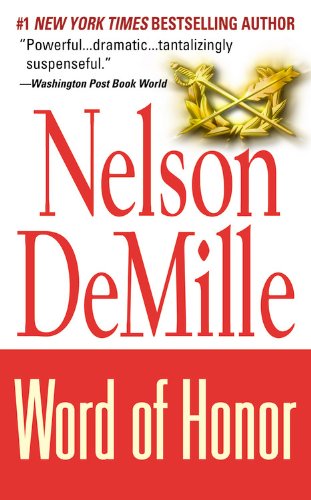
Demille, Nelson - Word of Honor PDF
Preview Demille, Nelson - Word of Honor
He is a good man, a brilliant corporate executive, an honest, handsome family man admired by men and desired by women. But sixteen years ago Ben Tyson was a lieutenant in Vietnam.
There, in 1968, the men under his command committed a murderous atrocity-and together swore never to tell the world what they had done. Not the press, army justice, and the events he tried to forget have caught up with Ben Tyson. His family, his career, and his personal sense of honor hang in the balance. And only one woman can reveal the truth of his past-and set him free.
From Publishers WeeklyIf fiction can assuage the lingering moral pain of the Vietnam War, it's through the kind of driving honesty coupled with knowledgeability that DeMille (By the Rivers of Babylon) employs here, in a story which, as riveting as The Caine Mutiny but with wider implications, probes the conflicting concepts of honor, duty and loyalty as they relate to an event of the My Lai varietyand assesses blame. Prompted by a just-published book that holds ex-lieutenant Ben Tyson accountable for a hushed-up massacre committed by his platoon in a Hue hospital 18 years before, the army recalls Tyson to stand trial for murder. Tyson, confronted by an army authority anxious to save its own face, an embarrassed federal government (which has its own "deal" to propose) and a threatened marriage, and entangled, furthermore, in his own past lives and present sense of guilt, must call on all his lawyer's cleverness and his own inner toughness to fight his case. The flashbacks to Hue, the pre-trial investigation (involving an attractive female major), the court-martial proceedings, the emotions of the principal characters and the soul-sickness wrought by war (which is the story's effective subtext)all are depicted with marvelous vividness. 50,000 first printing; $50,000 ad/promo. Foreign rights: Jack Ellison. November 11
Copyright 1985 Reed Business Information, Inc.
This huge and merciless account follows an ordinary corporate man, Ben Tyson, as his Army commission is reactivated so that he can be court-martialed on charges of murder. The events go back 15 years to a hospital in Vietnam where his platoon took heavy action and many civilians died. Did he wantonly kill enemy and civilian alike? The investigation, intended to restore military honor after My Lai, gives no quarter. All the hostile witnesses are called up while friendly witnesses are lost or silent. Tyson's own sense of honor lets him give only tiny scraps of information even to his attorney. The courtroom sequences are so powerful that most of the other action is like filler. The dialogue rings true and shows a gift for wit and timing. Apart from its unfortunate length and a slightly over-drawn hero, this succeeds as a mature and compassionate statement about Americans at war in Vietnam. Barbara Conaty, Medical Coll. of Wisconsin, Milwaukee
Copyright 1985 Reed Business Information, Inc.
